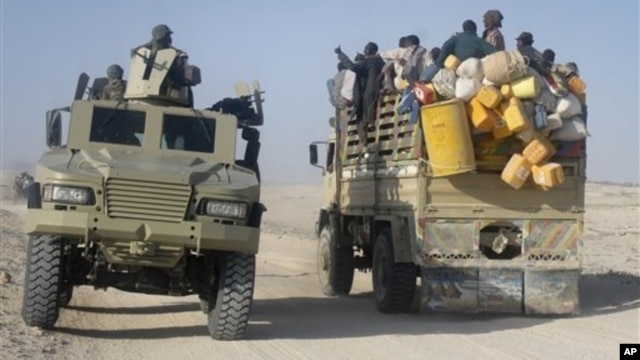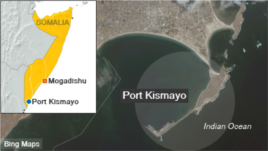Gunmen shot dead Mustaf Haji Mohamed outside his home after evening prayers, the latest in a wave of attacks since Somalia's new assembly elected President Hassan Sheikh Mohamud earlier this month.
"How many times had we warned Somalis against joining the infidel government?" Sheikh Abdiasis Abu Musab, spokesman for military operations for the Islamist militant group al Shabaab, told Reuters late on Saturday.
"Let it be a good lesson for the rest."
Mohamud's election was hailed by his supporters and Western powers as a vote for change after more than two decades of violence. The militants were swift to brand the political newcomer a "traitor" who headed a government serving only Western interests.
Mohamud was the target of a failed suicide bombing just two days into his new job.
"We killed legislator Mustaf ... and we will kill all Somali MPs and officials one by one," Musab said.
The U.N. secretary-general's special envoy to Somalia, Augustine Mahiga, called the shooting a cowardly act that was a "reminder of the challenges faced by the new institutions and administration."
The appointment of a new, slimmed-down parliament and the first presidential vote came as African troops prepared an assault on al Shabaab's last stronghold in the south of the country.
Al Shabaab drafted in hundreds of fighters from other regions this week to reinforce the port city of Kismayu.
The African Union AMISOM force said, however, there were signs of deepening internal rifts within al Shabaab. More than 200 rebels defected near the town of Jowhar, about 80 km (50 miles) from the capital, on Saturday, AMISOM said.
"Al Shabaab is divided and being defeated across Somalia," Brigadier Michael Odonga, the force's deputy commander, said.
There was no immediate reaction from al Shabaab.
While the loss of Kismayu and its port would weaken the rebels' morale and deprive them of a key revenue source, it would unlikely deliver a knockout blow to the insurgency.
Although AMISOM and Somali government forces have regained control of numerous towns across southern and central Somalia, the vast rural areas between remain a free-for-all.
Diplomats expect al Shabaab to retreat to the hinterlands, as they have done before, and resort increasingly to the suicide bombings and targeted assassinations that have marked Mohamud's first two weeks in power.
(Additional reporting by Andi Sheikh in Mogadishu and Richard Lough in Nairobi; Writing by Richard Lough; Editing by Janet Lawrence)






